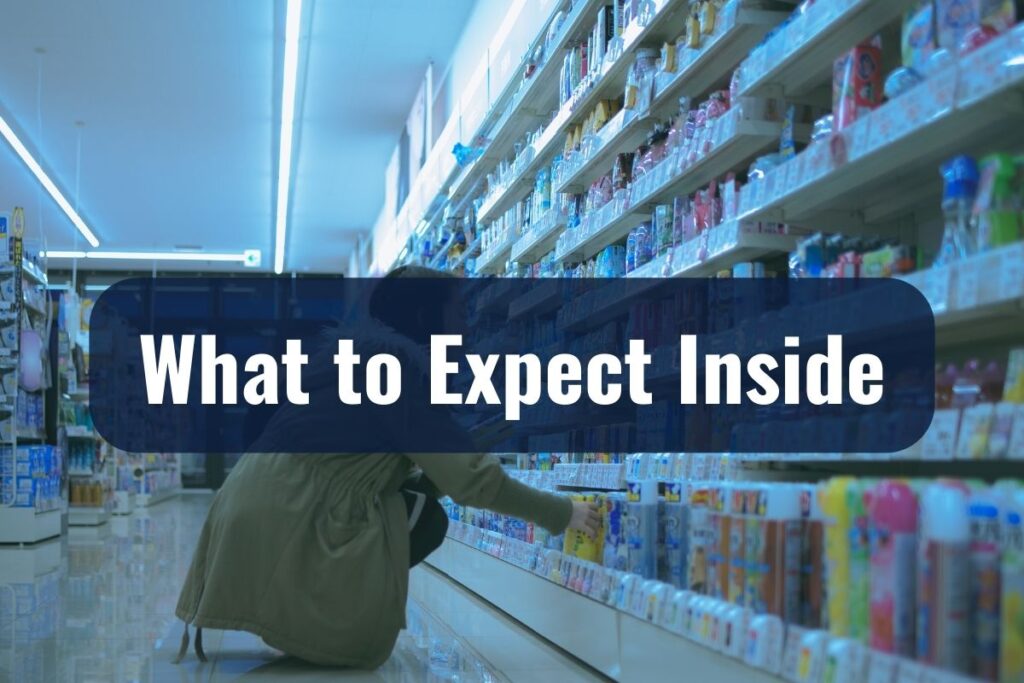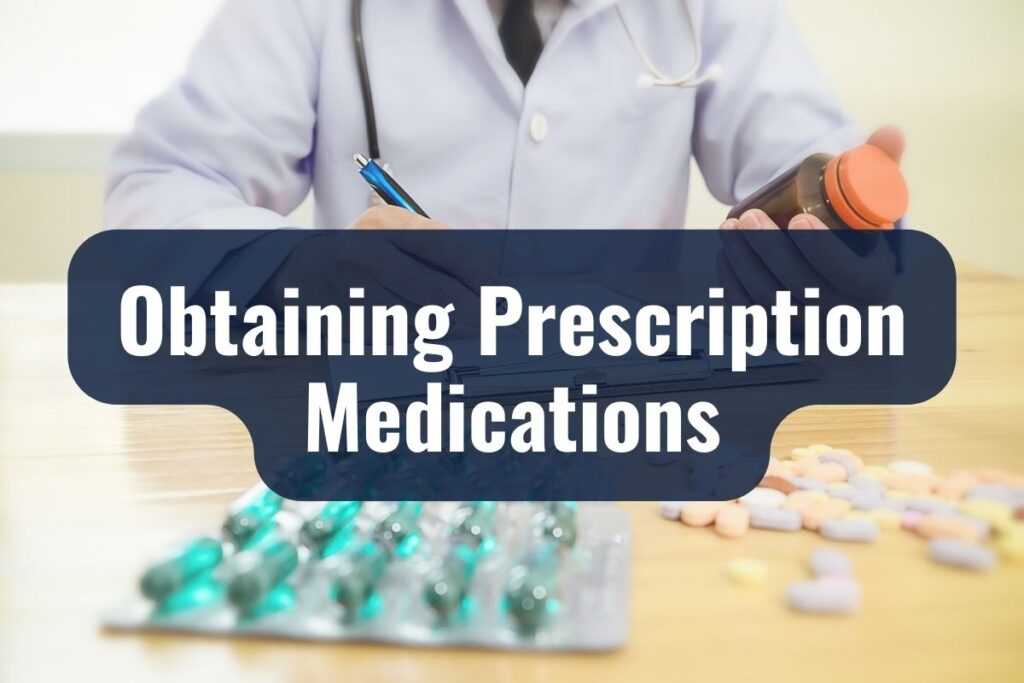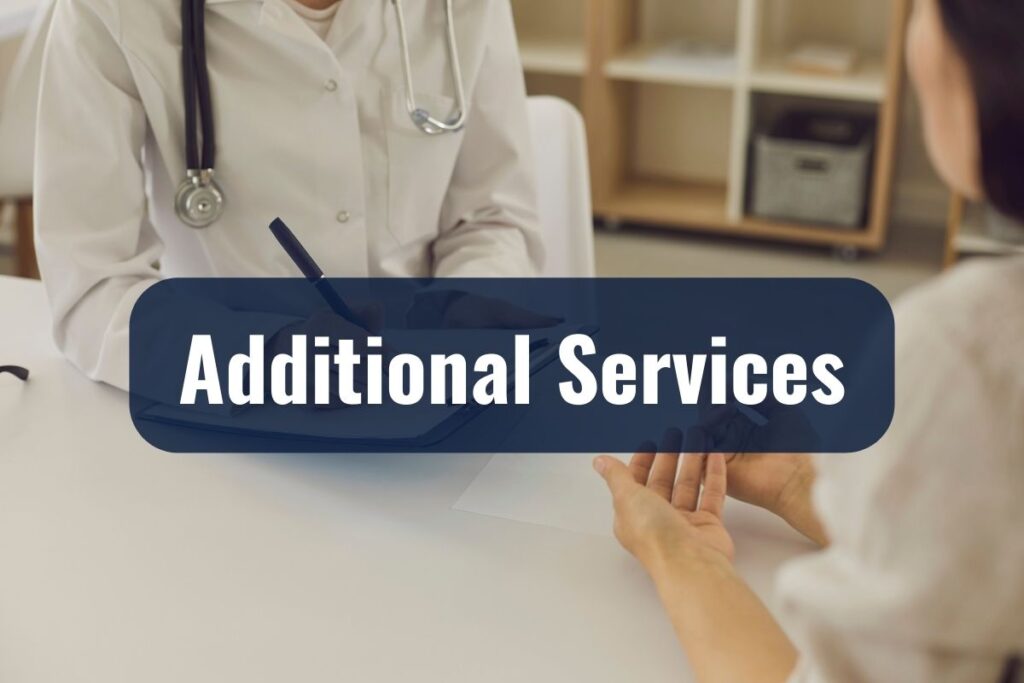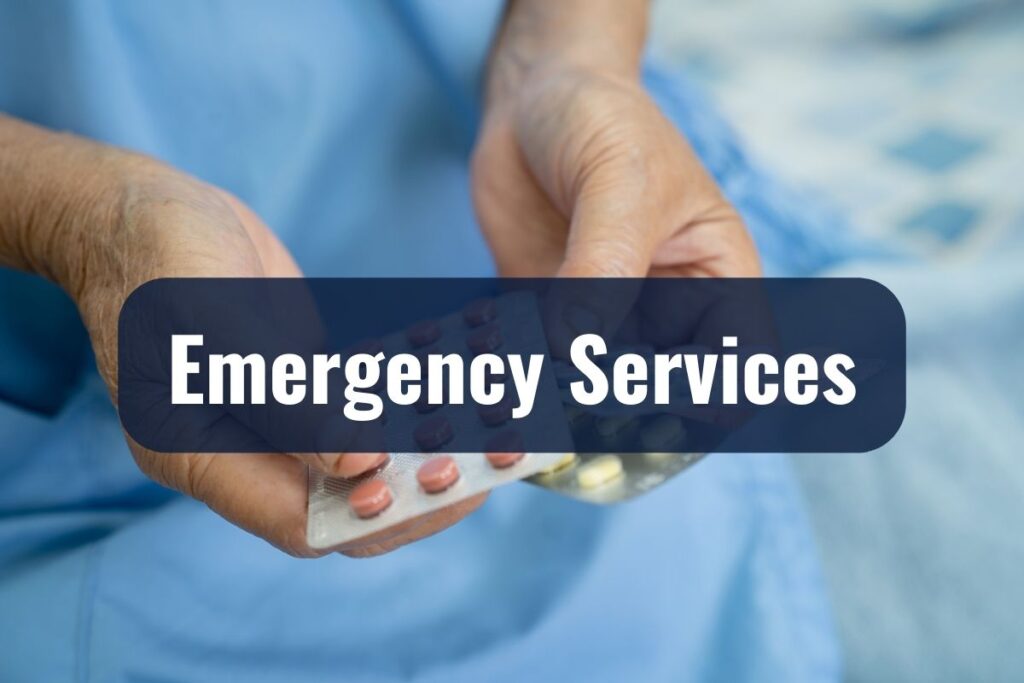Every country has its unique approach to healthcare, and pharmacies often sit at the heart of these systems. In France, the role of the pharmacy goes beyond merely being a place to pick up medication. For locals and visitors alike, a French pharmacy serves as a bridge to understanding the broader health culture of this historic nation.
Whether you’re facing a health concern, looking for beauty products, or merely curious about the role these establishments play in French society, this guide promises to enlighten and assist.
KEY TAKEAWAYS
- French pharmacies, identifiable by their green cross, are comprehensive health centers.
- While many OTC medications are available, they’re often kept behind the counter for consultation.
- For prescription medications, a valid local prescription is essential, and brand differences might exist.
- French pharmacies offer more than medications: vaccinations, health advice, and specialized products.
- Understanding payment methods and insurance reimbursement is key to an economical pharmacy experience.
- In emergencies, locate “pharmacies de garde” or dial “15” for the SAMU emergency service.
The Unique Structure and Significance of French Pharmacies
If you find yourself walking through the cobbled streets of Paris or the scenic avenues of Nice, it’s hard to miss the iconic green cross illuminating many street corners. This emblem, instantly recognizable, symbolizes a haven of health solutions and, quite often, a point of first contact for minor medical concerns.
Recognizing a Pharmacy
The Green Cross: An Emblem of Health
One of the most distinctive signs you’ve stumbled upon at a French pharmacy is the glowing green cross, often flashing or rotating, prominently displayed outside the establishment.
This universally recognized symbol in France is not just an indicator of a pharmacy’s location; it’s a beacon of health solutions and trusted advice. When you see this cross, rest assured that you’re never too far from medical assistance or advice.
Typical Operating Hours
Like many businesses in France, pharmacies adhere to specific hours, though they can vary based on the region and whether they’re in urban or rural settings.
Generally, most pharmacies open their doors around 8:30 AM or 9:00 AM and close around 7:00 PM to 8:00 PM. It’s also not uncommon for pharmacies, especially those in smaller towns, to have a lunch break for an hour or two, typically from 12:00 PM to 2:00 PM.
However, do note that in larger cities or tourist-heavy regions, you may find pharmacies with extended hours. Additionally, for emergencies or late-night needs, every region will have designated ‘Pharmacies de Garde,’ which operate outside regular hours. It’s always a good idea to be aware of the nearest one when you’re staying in a new place.
What to Expect Inside

The Core Focus: Medications and Health-Related Items
When you step into a French pharmacy, the first thing you’ll notice is its intimate, often boutique-like setting. Unlike vast chain drugstores in some countries, French pharmacies have a keen focus. The emphasis here is not on providing a wide range of general goods but specifically on medications, health-related items, and beauty products.
Prescription and Non-prescription Medications
Prominently arranged shelves will greet you, holding both prescription and over-the-counter (OTC) medications. While some OTC drugs might be directly accessible to you, many are kept behind the counter, requiring you to interact with the pharmacist to procure them.
The Beauty of French Skincare
A unique facet of French pharmacies is their range of high-quality skincare and beauty products. Often, these are not the typical commercial brands but niche, sometimes even local, products that have earned their reputation over the years.
From world-renowned moisturizers to specialty serums, the beauty section of a French pharmacy is an experience in itself, often offering products with a focus on natural ingredients and effective results.
The Pharmacist: Your Health Adviser
Arguably the heart of any French pharmacy is the pharmacist. Trained rigorously and possessing a wealth of knowledge, they are not merely dispensers of medication.
In France, the pharmacist often serves as the first point of consultation for minor ailments. If you’re feeling under the weather or need advice on a health concern, don’t hesitate to approach them. Their guidance is invaluable, and they can either provide solutions or direct you to seek further medical attention if necessary.
English-Speaking Pharmacists: A Welcoming Presence
While French is the official language and indeed the one most commonly spoken in pharmacies, there’s a growing acknowledgment of the diverse visitors and residents in France. Especially in larger cities or tourist-frequented areas, it’s not uncommon to find pharmacists or staff members who speak English.
However, if you venture into more remote regions, you may encounter pharmacists who speak primarily French. In such instances, patience and preparation can be key.
Handy Phrases for Basic Communication
Even a few basic phrases can be instrumental in bridging the communication gap. Here are a few essential French sentences that might aid you:
- “J’ai besoin d’aide.” (I need help.)
- “Je cherche quelque chose pour…” (I am looking for something for…)
- “J’ai mal ici.” (Pointing to where you have pain) (I have pain here.)
- “Est-ce que vous parlez anglais?” (Do you speak English?)
Learning these sentences, or having them handy, can smooth out your interactions, making your pharmacy visit more efficient and less stressful.
Translation Apps: A Modern Solution
In our digital age, translation apps have become a boon. If you’re unsure about your French or the pharmacist’s English proficiency, apps like Google Translate or Duolingo can be immensely helpful.
Simply type or speak into the app, and it will provide a translation. Moreover, many apps now allow for real-time conversation translation, making back-and-forth exchanges more seamless.
Obtaining Prescription Medications

The Mandate of a Local Doctor’s Prescription
In France, the system for procuring prescription medications is stringent and closely monitored. While over-the-counter drugs can be accessed with relative ease, prescription medications require a valid prescription from a local doctor.
It’s essential to understand that a prescription from your home country unless accompanied by a corresponding French prescription, might not be directly accepted.
Transferring Foreign Prescriptions
If you’re a resident or plan to stay in France for an extended period and rely on specific prescription medications, it’s recommended to consult a French doctor. They can provide a local prescription equivalent to your foreign one.
In some cases, international health clinics or establishments catering to foreigners might assist in this translation process. However, always ensure that the prescription you receive aligns with your medical needs.
One challenge that foreigners might encounter is the unavailability of the exact medication brand they’re used to. While the brand might differ, France boasts a robust pharmaceutical sector, and equivalent medications with the same active ingredients are typically available.
If uncertain, discussing with the pharmacist can be enlightening. They can guide you to the closest match or suggest a suitable alternative. It’s always a good idea to keep a note of the generic name of your medication, as this can facilitate the search for its equivalent.
Over-the-counter Medications
General Availability and Access
When it comes to over-the-counter (OTC) medications in France, it’s an interesting blend of familiarity and discovery. Many common medications that you might be accustomed to in your home country are likely available, but perhaps under a different name or brand.
OTC medications in France are generally of high quality and encompass a range of remedies for various ailments, from pain relief to cold remedies.
Seeking Specific Remedies
Unlike some countries where OTC drugs are freely accessible on open shelves, in France, many such medicines, even if they don’t require a prescription, are kept behind the counter. This arrangement serves a dual purpose:
- Ensuring Quality Consultation: It encourages interaction with the pharmacist, ensuring that you get the right medication for your symptoms.
- Promoting Safe Usage: By discussing your symptoms or needs with the pharmacist, you reduce the risk of choosing a medicine that might not be suitable or could interact with other medications you’re taking.
For minor ailments or general wellness products, explaining your symptoms or showing the product’s name or picture to the pharmacist often suffices. For example:
- “Je cherche un remède pour un mal de tête.” (I am looking for a remedy for a headache.)
- “Avez-vous quelque chose pour une toux?” (Do you have something for a cough?)
Understanding Dosage Instructions
One of the most crucial aspects of buying medications, prescription or OTC, in a foreign country is understanding the dosage instructions. While many pharmacists will explain the instructions to you, it’s imperative to clarify any doubts you might have, especially given the language barrier. Remember:
- “Combien de fois par jour?” (How many times a day?)
- “Avant ou après les repas?” (Before or after meals?)
Taking the time to comprehend the instructions ensures not only the effectiveness of the medication but also your safety.
Additional Services

Vaccine Administration and Minor Medical Services
In addition to providing medications, many French pharmacies offer a range of other health-related services. One of the more prominent services, especially in recent times, is vaccine administration.
Depending on the current health advisories and availability, some pharmacies might offer seasonal flu shots, travel vaccinations, or other essential vaccines. It’s always a good idea to check in advance, either by calling or visiting the pharmacy, to understand the available vaccines and any prerequisites or appointments required.
Health Consultations and Advice
Beyond dispensing medications, the pharmacist’s role as a health advisor is paramount in France. For minor ailments or general health inquiries, a consultation with the pharmacist can often provide insights, recommendations, and, if necessary, referrals to specialists or medical practitioners. This expertise makes the pharmacy not just a place for medications but a hub of holistic health advice.
Specialized Baby or Maternity Sections
For new parents or those expecting, certain pharmacies offer specialized sections dedicated to baby and maternity care. From baby formulas, teething remedies, and skin care products to maternity care essentials, these sections are designed to cater to the unique needs of this demographic.
Additionally, pharmacists are usually well-equipped to advise on baby-related concerns, providing trusted guidance for those crucial early months.
Payment and Insurance
Payment Options: Cash, Card, and More
When it comes to payment at French pharmacies, the process is generally straightforward and modern. Most pharmacies accept a range of payment methods. While cash remains an option, credit and debit cards are widely accepted.
If you plan to pay by card, especially if it’s an international one, it’s a good practice to confirm its acceptance beforehand. Contactless payments and mobile payment systems like Apple Pay or Google Wallet are also becoming more prevalent in larger cities.
Health Insurance and Reimbursement
If you have health insurance in France, either through the public health system or a private insurer, many prescription medications can be partially or fully reimbursed.
Carte Vitale
For those enrolled in the French public health system, the green ‘Carte Vitale’ is your gateway to subsidized healthcare. By presenting this card at pharmacies, a significant portion of your medication costs can be directly covered.
After the transaction, the pharmacy will provide a receipt, often referred to as a “feuille de soins,” which you may need to retain for your records or potential further reimbursements.
Mutuelle Health Insurance
Many residents in France opt for additional private health insurance, known as “mutuelle.” This insurance can cover what the state health insurance might not, including certain medications, optical care, and dental procedures.
If you have such a policy, inform the pharmacy, as they might directly bill the insurance or provide necessary documentation for you to claim reimbursement later.
Foreign Insurance
For visitors or short-term residents using foreign health insurance, it’s essential to keep all receipts and documentation. While you’ll likely need to pay upfront at the pharmacy, these documents will be crucial for claiming reimbursements from your insurer once back home or at the end of your coverage period.
VAT and Tourist Tax Refunds
For non-EU tourists, certain non-prescription products, especially in the beauty and skincare ranges, might qualify for VAT refunds if purchased within specific limits. It’s beneficial to inquire about the “détaxe” process if you’re planning significant purchases and ensure you receive the necessary forms and receipts for processing at the airport or border exits.
Emergency Services

In moments when health concerns escalate beyond the scope of a regular pharmacy visit, it’s vital to know how to access emergency services in France.
| Service | Description | Contact/Reference |
| 24/7 Pharmacies (“pharmacies de garde”) | Pharmacies open outside standard hours for urgent needs | Posted lists at local pharmacies, “3237” service |
| SAMU (Emergency Medical Assistance) | Provides immediate medical attention, dispatches ambulances | Dial “15” |
| European Emergency Number | Standardized emergency numbers across EU countries | Dial “112” |
| Hospitals and Clinics | Facilities with emergency units for urgent health concerns | Local directories |
While pharmacies play a pivotal role in health advisories and non-critical situations, emergencies necessitate a different approach.
24/7 Pharmacies
Most pharmacies in France operate within standard business hours. However, in every city and most larger towns, there’s always at least one pharmacy that remains open 24/7. These are termed “pharmacies de garde.” If you find yourself in need of medications or health products outside regular hours:
- Locate the Nearest Open Pharmacy: Often, local pharmacies will have a list posted on their doors indicating the nearest 24/7 or late-night service pharmacy.
- Use Dedicated Services: There are phone lines and websites dedicated to helping you locate the nearest “pharmacie de garde.” One of the popular services is “3237,” which can be dialed or accessed online.
Emergency Medical Assistance
If the situation is dire and you or someone else requires immediate medical attention:
- Call SAMU: Dial “15” from any phone. This is the number for SAMU (Service d’Aide Médicale Urgente), which is the emergency medical assistance service in France. They can dispatch ambulances, provide over-the-phone first-aid guidance, or direct you to the nearest emergency facility.
- European Emergency Number: Dial “112.” This number is standardized across EU countries and can connect you to emergency services.
Hospitals and Clinics
For non-immediate but still urgent health concerns, heading directly to the emergency department of a local hospital or clinic might be the best course of action. Every city and most towns have at least one hospital equipped with an emergency unit.
Pharmacy’s Role in Emergencies
While pharmacies are not emergency centers, they remain a significant first point of contact for medical advice. If unsure about the severity of a situation, a pharmacist can provide initial guidance and, if necessary, direct you to seek more immediate or specialized care.
In any emergency, it’s imperative to remain as calm as possible and communicate the problem clearly and concisely. France’s medical system is robust, and its professionals are trained to assist in various situations. Knowing how and where to seek help can make all the difference in ensuring timely and effective care.


